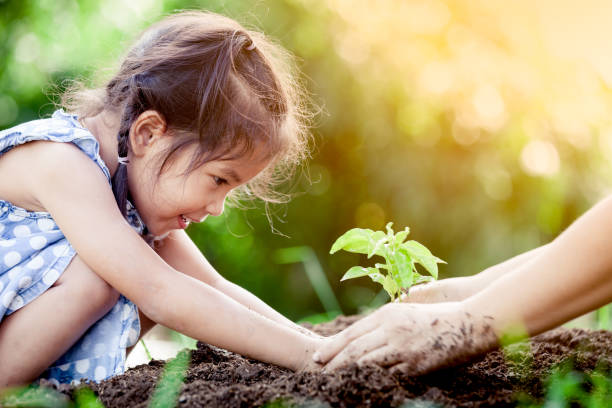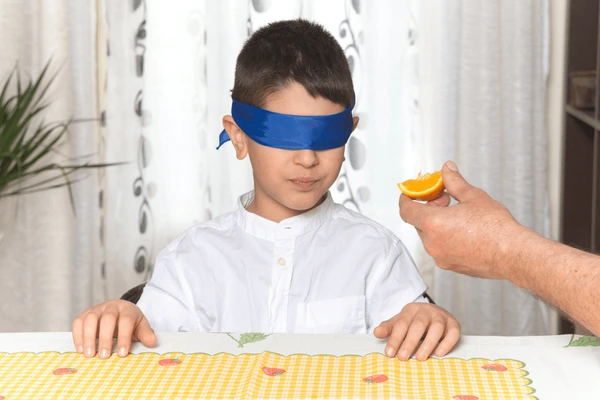When we think about parenting, we often concern ourselves with our actions and our words.
Whether it’s teaching them math, packing their lunch, or tucking them into bed at night, it always feels like there’s an endless list of things to do.
Yet, perhaps the most important part of parenting is the way we think about parenting.
Specifically, the metaphors we use to shape our perceptions of childhood can significantly influence how we raise our kids.
Let’s dive into why metaphors in parenting are essential tools that shape our approach to raising the next generation.
Why Metaphors Matter in Parenting
Let’s begin with a fundamental question: What is a metaphor?
At its core, a metaphor allows us to comprehend one thing by looking at another thing. It’s a kind of mental shortcut that enables us to make sense of something really complex.
Take, for instance, the common metaphor, “Parenting is a marathon, not a sprint.”

At face value, you might not see the connection between parenting and running long distances. However, this metaphor helps convey the idea that parenting is a long-term commitment that requires endurance and patience.
So here’s the thing—metaphors are more than just words. In the context of parenting, the metaphors we use carry a lot of weight. They shape our perceptions, influence our decisions, and ultimately affect our behavior.
Below we discuss some popular metaphors that are used to describe the process of growing up.
The Garden of Childhood: A Metaphor for Innocence and Joy
One of the most persistent symbols associated with childhood is that of a garden.
Picture a richly flowering garden filled with brilliant blooms, humming bees, and the fragrance of sweet-smelling plants.
In this symbol, children are the flowers—innocent, pure, and full of potential.


The image of a garden represents the carefree days of childhood, where every moment is filled with wonder and discovery.
Every gardener understands that their endeavors demand not just time but also tender, loving care.
The same can be said of parenting. Just as you would tend to your garden by watering the plants, pulling out weeds, and providing the right amount of sunlight, you must also nurture your children, guiding them with love, patience, and understanding.
This metaphor reminds us that childhood is a precious time that needs to be cherished and protected.
Yet the garden metaphor also conveys a bittersweet truth.
Like a garden, a child’s life has seasons of growth and decline.
There comes a time when children must leave the garden of innocence and step into the more complicated world of adulthood. This transition is often symbolized by the story of Adam and Eve being cast out of the Garden of Eden after gaining knowledge of good and evil. It’s a reminder that as parents, we can only protect our children from the dangers of the real world for a limited amount of time. Eventually, they must face the world on their own.
The River of Life: Navigating the Journey from Childhood to Adulthood
Another common metaphor is that of crossing a river.
A parent and child stand at the edge of a wide, fast-moving river. The river symbolizes the journey from childhood to adulthood, filled with possibilities and fraught with dangers.
The role of the good parent is to see the child safely across to the other side.
This metaphor strikes a particularly deep chord in Eastern cultures, where the journey across the river is viewed as an essential rite of passage.


The river may be dark and scary, representing the inevitable challenges and tough times the young ones must go through to reach maturity. But with the parent—the steady, guiding, and protective presence—as they cross to the other side, the river hardly seems as daunting.
This metaphor centers on providing protection and guidance.
It’s a reminder that while we can’t prevent our children from encountering difficulties, we can be there to support them, offering wisdom and comfort as they navigate life’s challenges.
Training Grounds: The Pragmatic Approach to Parenting
Conversely, some parents see childhood as a period of preparation for living as an adult.
They see themselves not as parents but as coaches, sometimes yelling or scolding to turn a child into an ‘athlete’ prepared to win in the ‘real world.’


The emphasis in this approach is on rigorous training—on assuring that the child learns the steps, the tactics, and the strategies that he or she will need to be ready.
Although the metaphor of training is practical and goal-oriented, it has its own problems.
It can create pressure—on both the parent and child.
It can also produce a “purpose lens,” where every experience in childhood is viewed through the narrow aperture of, “Is this an effective, enjoyable experience to succeed in the future?” rather than just the “Is this enjoyable in its own right?” lens.
For instance, one might view childhood only as a precursor to the real significant stuff that happens in adulthood.
In that case, it would make sense to push the child to achieve, wouldn’t it?
While these are worthy goals, they can also lead to burnout or a sense of inadequacy if the child feels they’re constantly being evaluated.
Creating New Metaphors: Shaping the Future of Parenting
The thrilling aspect of all this is that we can create new metaphors for parenting!
Just because certain metaphors have been handed down through the generations doesn’t mean we’re stuck with them.
As parents and educators, we can make parenting metaphors that reflect our values, our hopes, and our vision for our children.


Think of childhood as an art project co-created by parent and child. Together, they craft a painting—a unique work, distinct from all others, even if some colors overlap.
There’s room in this work of art for all kinds of expression. You might not want to paint too far outside the lines, but this metaphor encourages a parenting style that values collaboration, expression, and exploration.
Alternatively, you may favor the symphonic metaphor. Here, each family member is an instrument, making their unique contribution to the harmonious melody of family life.
The parent, as conductor, guides the symphony, ensuring that the diverse voices of the family are blended together into a single, beautiful song.
This metaphor emphasizes balance, bringing together the many diverse voices of the family into a single, harmonious whole.
The Impact of Metaphors on Parenting Decisions
You may be pondering whether these metaphors truly matter.
The answer is a resounding yes!
The metaphors we use shape our parenting decisions. These ‘big-picture’ models serve as the context within which we make a multitude of day-to-day decisions, some of which are quite profound.
For instance, if you conceptualize the early years as a garden, the first thing you might do is ensure that the environment is peaceful and nurturing. You might focus on the condition of the child’s soil, which is to say, the child’s emotional health. You might think a lot about as many ways as possible to express love and affection so that the child feels secure.
Conversely, if you take the training ground metaphor, then you might accentuate structure, discipline, and goal-setting. You might be more inclined to enroll your kid in extracurricular clubs, academic seminars, or teams, with the aim of building skills and preparing them for future challenges.
If you see childhood as a collaborative art project, you might promote open communication, shared decision-making, and creative problem-solving. You might be more permissive and more flexible, working with your child’s interests and needs at each stage of their development.
Finding Balance: Using Multiple Metaphors
Naturally, parenting cannot be fully comprehended through a single metaphor. This is why it is crucial to work with multiple metaphors, leaning on different ones at different times.
For example, when you are in a transitional period—like beginning a new school, relocating to a different city, or facing a family emergency—you may use the river crossing metaphor and think of ways to guide and support your child through the turbulent waters of the moment.
When motivating your child to follow a passion or build a skill, the training ground metaphor might be useful. It can help you present the occasion as a not-so-ordinary life experience with the potential to teach some very important, if not wholly desirable, lessons.
In those ordinary yet profound instances—be it frolicking at the park, narrating a bedtime story, or just being present with one another—you might consider the metaphors of garden or art project more appropriate. They remind you to savor the beauty and joy of childhood.
Conclusion: The Metaphor You Choose Matters
Ultimately, the parenting metaphors we select are more than mere words. They’re potent instruments that affect how we think, how we decide, and, in the end, how we act. When we choose parenting metaphors that resonate with our values and our dreams for our children, we’re able to parent with more intention and confidence.
When you encounter a parenting challenge, stop to think about the metaphor or metaphors you’re using. Are they helping you navigate the complexities of parenthood with grace, patience, and love? If not, don’t be afraid to try on a new metaphor—one that inspires you, empowers you, and brings out the best in both you and your child.
Parenting is a journey, and metaphors serve as maps that guide us along this journey. Why not choose a metaphor that leads to joy, connection, and growth as a parent and in the child we are raising?






